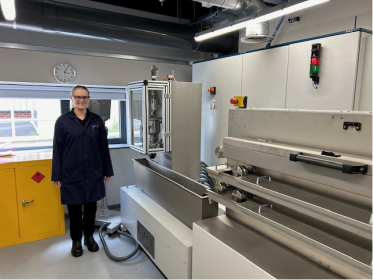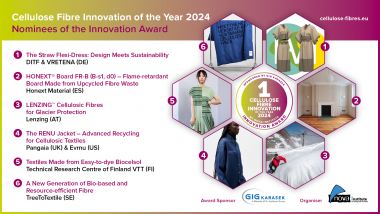New R&D appointment for FET wet spinning team
Fibre Extrusion Technology Ltd (FET) of Leeds, UK has continued the ongoing process of strengthening its Research & Development team. The latest addition is Charlotte Witts, who is currently studying for a degree in Chemistry at Nottingham University and will work at FET for a 12-month period. She will continue her studies in chemistry as distant learning modules whilst also working at FET. FET designs, develops and manufactures extrusion equipment for a wide range of high value textile material applications worldwide.
“I’m really excited to be joining the team at FET and getting stuck in to the role. Sustainability is a big passion of mine, so I’m looking forward to learning how FET develops new technologies that support the textile industry in this endeavour. I hope that my previous studies within this area will help to foster new ideas.”
Furthermore, FET has a development policy of bringing young people into the industry and has invested heavily in recent years to this end, helping to address the skills gap in the UK textile industry. The company’s R&D department comprises ten scientists and engineers who work closely with customers on process development and new product trials.
Charlotte Witts will be focusing on the wet spinning process which is fortuitous as FET has just finished commissioning their own in-house low viscosity wet spinning system. Over the coming year she will focus on spinning a number of bio-sourced polymers (e.g. alginate, chitosan, gelatin, recombinant proteins). These materials require a strong scientific understanding of the underlying chemistry to successfully produce a high-quality yarn. Furthermore, FET regularly gets customer requests to conduct trial work on these materials to de-risk the equipment purchase process.
Fibre Extrusion Technology Limited














